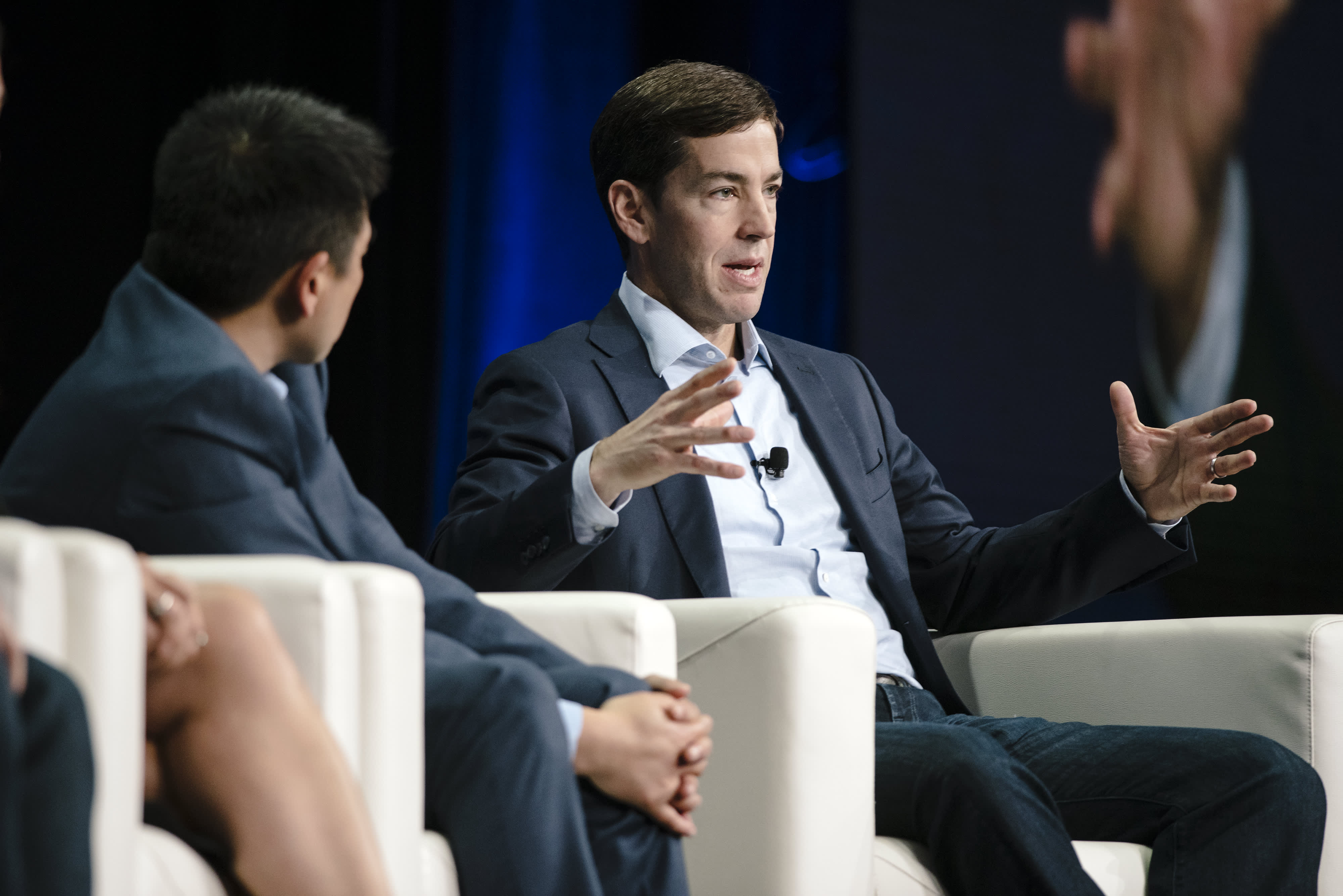Okta’s CEO is so concerned about burnout that he told employees to email him their vacation plans

Todd McKinnon, chief executive officer and co-founder of Okta Inc., speaks during the BoxWorks 2019 Conference at the Moscone Center in San Francisco, California, U.S., on Thursday, Oct. 3, 2019.
Michael Short | Bloomberg | Getty Images
As CEO of a high-growth software company in San Francisco that employs 3,500 people and recently closed a $6.5 billion acquisition, Okta co-founder Todd McKinnon has plenty to worry about.
But few things these days concern him as much as employee burnout.
While the company allows for unlimited vacation, McKinnon knows how hard it can be for people to make guilt-free plans to get away and stop worrying about product updates and deliverables for a few days. That’s especially true in the Bay Area, where 16-hour days and working weekends are often the status quo.
So at a recent all-hands meeting, he told Okta employees about his plans for an upcoming family vacation in Napa as a way to try and relieve some pressure and remind them of the importance of logging off.
But he didn’t stop there.
He then asked everyone to email him with their upcoming arrangements, providing as much detail as they wished.
“I got a lot of emails,” McKinnon said in interview in late June before leaving town and unplugging. At the time, he’d received about 950 messages from employees and had made it through roughly 300 of them. “They’re still trickling in,” he said.
McKinnon read a few snippets from the notes in his inbox. One employee was going to Maui and looking forward to the Mai Tai bar. Another planned to travel around Europe. Others are just making up for lost time from the pandemic.
“It’s a lot of, ‘I’m going to see family, I haven’t seen my parents in a year,'” he said.
Across the tech industry and the broader office world, the stresses of the coronavirus and 16 months of forced remote work have added to existing work-life balance struggles. With kids in Zoom school and sports leagues shut down, parents have had to keep their kids engaged while also trying to stay productive. Younger urban workers have been cooped up in small apartments with few social outlets.
Meanwhile, Okta and many other cloud software companies suddenly had more work to do. As employees at Okta’s customer companies scattered, they needed better collaboration, communication and security tools, and demand soared. Okta’s identity management software helps companies securely deploy apps and manage their use.
In March, Okta agreed to buy identity service Auth0 for $6.5 billion, its biggest acquisition by far, and one of the largest tech deals this year.
“Acquisitions are big changes,” McKinnon said. He added that the company has hired a number of new senior leaders, including a head of worldwide partners and a new finance chief. “They promote people and bring in new people,” McKinnon said.
Modeling behavior
McKinnon acknowledges that burnout and mental health are separate issues. Kristina Johnson, Okta’s chief people officer, told CNBC late last year that the company had boosted its investment in Modern Health, a digital mental health and wellness service, and meditation app Headspace, to give employees more support during lockdown.
While mental health involves a complicated set of issues that often require medical and behavioral experts to address, burnout is largely the responsibility of management, McKinnon said. Employees have to be genuinely encouraged to take time off and managers have to adjust their projects accordingly.
“Expectations have to be balanced so you’re not putting people in a position that they have no choice but to be ground down,” McKinnon said. “We don’t want to grind you down. It’s not in anyone’s interest.”
McKinnon said it’s important for leaders at the top to model behavior that they want to see from employees. That’s why he’s so open about his vacation plans. It’s also the reason he’s not back to working at the office full-time.
In August, Okta told employees that most of them would be able to permanently work from anywhere they wanted. The San Francisco office reopened a few weeks ago and is available for employees who are vaccinated. The space has been reconfigured so there are no assigned desks and there’s more room for collaboration.
McKinnon said he’s working at the office on occasion, but not spending the majority of his time there because he doesn’t want employees to feel pressured to return prematurely.
“I don’t want to imply that, well the CEO is back so you better go back,” he said. “Once people settle into this new groove, I’ll go back a lot. My personal preference is to go back.”
McKinnon said that while the company is committed to maintaining a flexible work plan, he thinks a healthy number of employees will want to return at least for part of the week.
“What surprises people continuously, even me, is that they’ve forgotten the positive feeling of being around people,” he said.